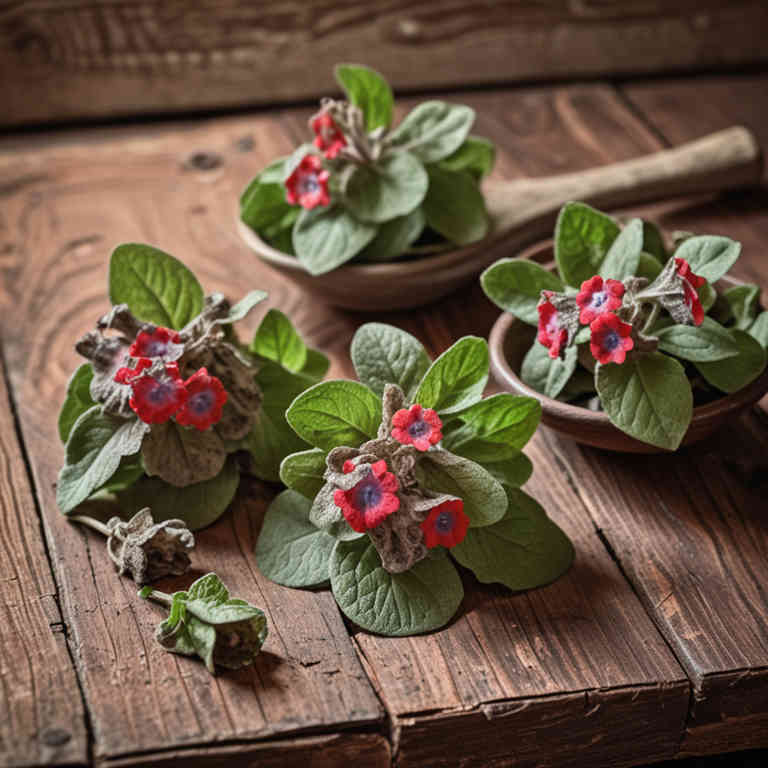Pulmonaria officinalis mucillage for medicinal use

Pulmonaria officinalis mucillage is a viscous, gel-like substance derived from the roots of the lungwort plant.
It is rich in mucilage, a type of polysaccharide known for its soothing and demulcent properties. In herbalism, this preparation is used to calm irritated mucous membranes, particularly in the respiratory and digestive systems. It is often employed to alleviate symptoms such as coughing, sore throat, and gastrointestinal discomfort.
The mucilage's ability to form a protective layer over inflamed tissues makes it a valuable remedy in traditional herbal medicine.
Uses
Pulmonaria officinalis mucillage has been used to treat respiratory conditions for centuries, particularly in traditional European medicine.
Historically, it was valued for its soothing properties and was used to alleviate coughs, bronchitis, and other lung-related ailments. In traditional practices, the mucilage was often prepared as a poultice or infused into herbal teas to ease inflammation and promote healing in the respiratory tract. Modern research suggests that its mucilage contains polysaccharides that may help protect and repair mucous membranes.
Today, it is still used in herbal remedies for respiratory support, though its applications are more limited compared to its historical use.
Benefits
Pulmonaria officinalis mucillage has health benefits such as supporting respiratory health, reducing inflammation, and promoting the healing of mucous membranes.
It is traditionally used to alleviate symptoms of coughs, bronchitis, and other respiratory conditions due to its soothing and demulcent properties. The mucilage acts as a protective layer over irritated tissues, helping to ease discomfort and promote recovery. It may also support immune function and aid in the clearance of mucus from the airways.
This herbal preparation is valued for its gentle yet effective action on the respiratory system.
Constituents
Pulmonaria officinalis mucillage active constituents include mucilage, polysaccharides, flavonoids, and tannins.
These components contribute to its traditional use in supporting respiratory health and soothing mucous membranes. The mucilage provides a protective layer over irritated tissues, while polysaccharides may enhance immune function. Flavonoids act as antioxidants, reducing inflammation and oxidative stress.
Tannins help in astringency and may assist in reducing excessive secretions.
Preparation
To make Pulmonaria officinalis mucillage, start by harvesting the fresh leaves of the plant during the spring or early summer when the mucilage content is highest.
Wash the leaves thoroughly and chop them into small pieces to increase surface area for extraction. Place the chopped leaves in a clean glass jar and cover them with cold water, ensuring the leaves are fully submerged. Let the mixture steep for 24 to 48 hours, then strain the liquid through a fine mesh or cheesecloth to collect the mucilage-rich extract.
This preparation can be used topically for respiratory conditions or internally in small doses as a soothing demulcent.
Side Effects
Pulmonaria officinalis mucillage may lead to gastrointestinal discomfort, including nausea, vomiting, and diarrhea, due to its high mucilage content.
It may also cause allergic reactions in individuals sensitive to plants in the Boraginaceae family. Prolonged use could potentially lead to digestive upset or interfere with nutrient absorption. The mucilage can form a thick coating in the stomach, which might slow down digestion.
It is important to consult a healthcare professional before using this preparation, especially for individuals with pre-existing digestive conditions.